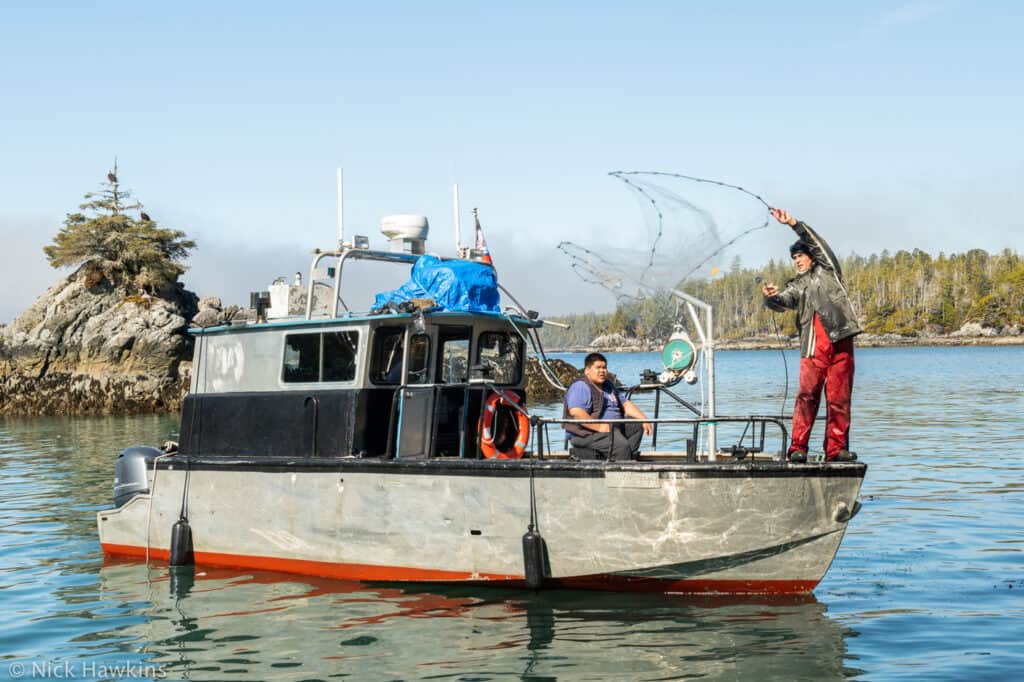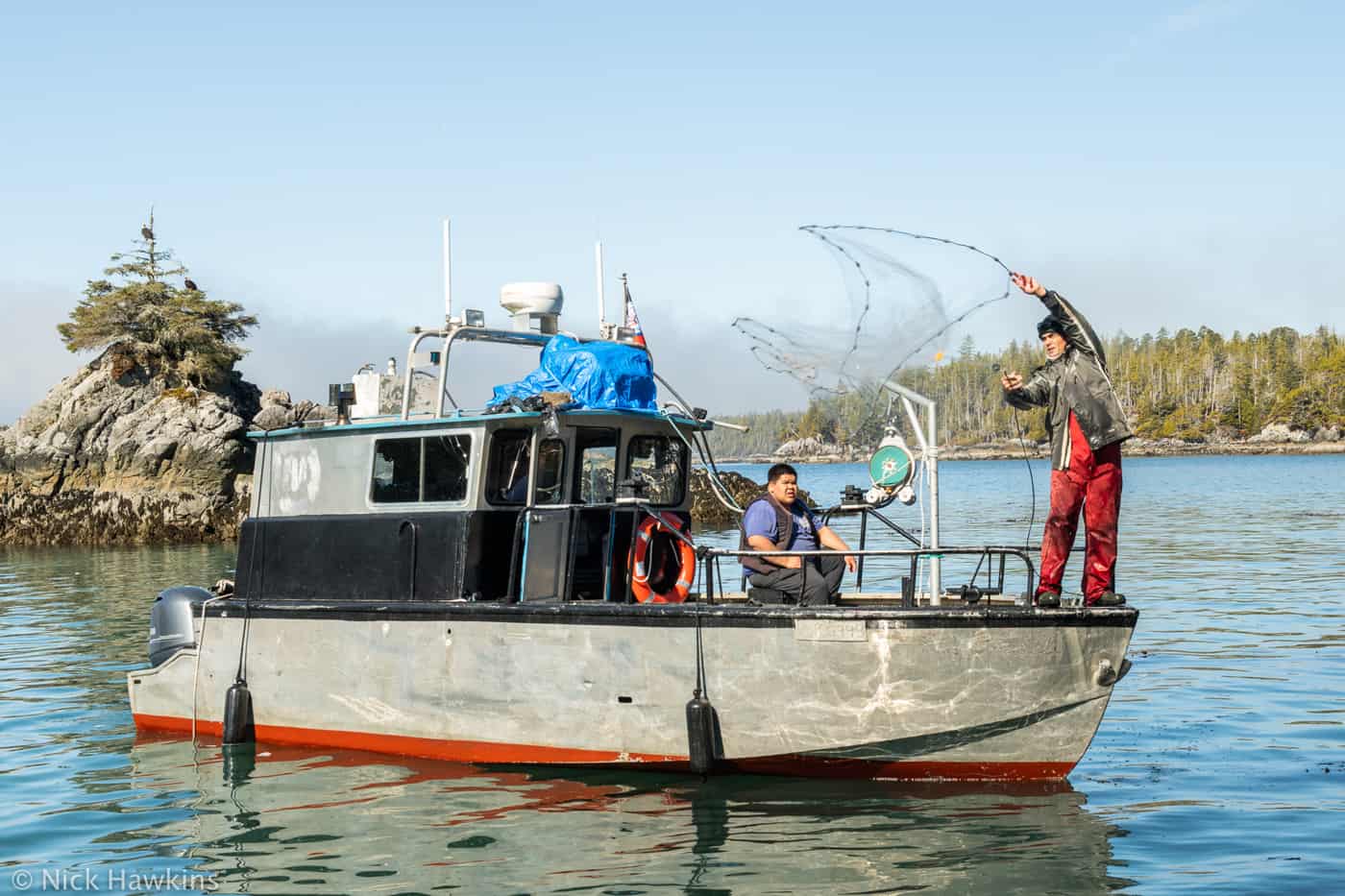by CarolAnne Black for Ocean School
“Salmon are super-important because they come back every year to nourish us,” says Desiree Lawson of the Haíɫzaqv Nation. For thousands of years, the Haíɫzaqv have been harvesting salmon and other food from the waters of the Pacific Central Coast. They consider it their responsibility to manage their land and ocean resources so that the next 10,000 years, or 700 generations, can continue to do the same: “We have a responsibility as people to take care of the ocean, and the lakes, and the rivers, to ensure the salmon have something to come back to.”
And it’s not just salmon that come back to nourish the Haíɫzaqv each year. A cultural keynote species and staple food of the Haíɫzaqv is herring, a small fish that migrates in schools by the millions to the Pacific Coast each spring to spawn (lay their eggs). The Haíɫzaqv of Bella Bella, a coastal community on Campbell Island, British Columbia, have been harvesting herring roe (eggs) in a sustainable way for generations.

Haíłzaqv community members fishing and casting a net to catch herring in Wágḷísḷa (Haíłzaqv Nation, Bella Bella, British Columbia). Courtesy of Ocean School
The Haíɫzaqv run a commercial roe fishery for subsistence and export. To harvest the roe, the Haíɫzaqv people first harvest kelp. They set the blades (similar to leaves) in lines, held in place by weights, in the protected areas of the bays and inlets preferred by the fish. Within just a few days, the female herring lay eggs upon eggs in layers on the rocks and vegetation, including the lines of kelp, covering the broad blades completely in small white spheres, which the Haíɫzaqv then harvest.
Boris Worm is a scientific director at Ocean School, a free, innovative, online ocean education resource developed by the Ocean Frontier Institute and the National Film Board of Canada for students aged 11 to 17. He says of the Haíɫzaqv roe harvest that, unlike the industrial fisheries that catch herring and take the roe from the bellies of the females, “the advantage of this fishery is that it doesn’t kill the herring. The herring lives on to spawn for many more years.” And since each female can lay up to 18,000 eggs each year, allowing them to return to the coast in future years makes a big difference to the number of eggs that are laid and the eggs that are hatched.
The fishery brings food and jobs to the Haíɫzaqv community, as well as a sense of identity to the Haíɫzaqv Nation. Louisa Housty-Jones is a Haíɫzaqv Tribal Councillor, roe-on-kelp captain, and traditional knowledge holder, who works to pass on the knowledge of her people’s harvesting practices to the next generation. She says of the fishery: “I grew up on the water, harvesting. It’s a huge part of my life and my identity, of who I am as a Haíɫzaqv person.”
In 2020, Ocean School—a resource built by educators for educators—partnered with the Haíɫzaqv Nation to tell stories of their relationship with the ocean. Through the voice of Jordan Wilson, a youth host and Haíɫzaqv Coastal Guardian Watchman, the learning module presents Haíɫzaqv fishing and cultural practices under the tagline, How can we take a little and leave a lot for nature? Wilson says of the Haíɫzaqv Nation managing ocean resources, “It’s our duty to protect this place so we can keep enjoying these things, to keep enjoying this place we call home. It’s rooted in our DNA. It runs through our blood; it’s who we are.”
Ocean School’s mission is to help us understand our influence on the ocean and its influence on us. Through an inquiry-based learning approach, Ocean School aims to empower youth with knowledge, tools, and inspiration so they can take action for the ocean. The website is searchable, accessible to hearing and visually-impaired students, and available on mobile devices. With resources that span sciences, social studies, language arts, and other subjects, each educational aid comes with a ready-made activity designed to engage students’ skills in problem solving and critical thinking.
Let Ocean School take you on a deep dive into learning about harvesting herring roe, salmon, and more with the Haíɫzaqv people. Learn more by visiting the Ocean School website.
[buzzsprout episode=’11441189′ player=’true’]
